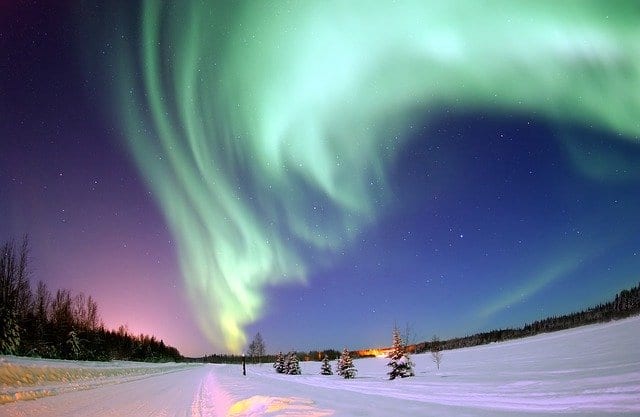Oh, that you would rend the heavens and come down,
that the mountains would tremble before you!
As when fire sets twigs ablaze
and causes water to boil,
come down to make your name known to your enemies
and cause the nations to quake before you!
For when you did awesome things that we did not expect,
you came down, and the mountains trembled before you.
Since ancient times no one has heard,
no ear has perceived,
no eye has seen any God besides you,
who acts on behalf of those who wait for him.
-Isaiah 64:1-4
The prophet sends up a desperate prayer: rend the heavens and come down. As though God might tear back a thin layer of paper that separates heaven and earth. You can almost hear it– the distinctive ripping sound that means a surprise is about to be revealed. In fact, the NRSV, which I usually prefer, says just that: “Tear open the heavens and come down.” But for this particular reading, and this season, there is just something more poetic and moving about the old-timey language: “Rend the heavens.” Somehow, “rending” just gets you in the gut.
I mean, anybody can tear something. But you have to get in a raw, human place to rend. That language comes from a wilderness place; the deepest of winter cold and darkness.
To the people of Israel, God seemed far away. After a generation of exile, the community longs for the new creation that God promised, and the new order of things that will be ushered in its wake. They hold out hope, in spite of their suffering.
During Advent, we tend to say things like “Heaven come down to earth” or “Come quickly, Lord.” But to pray for God to “rend the heavens and come down…” Do we really want that? It might make for some nice seasonal hymns– but I lean towards no. Because for God to “come down” would mean a complete re-ordering of everything we know. A righting of every wrong, a balancing of every unjust system.
In the midst of the world’s current suffering and division, this new day of justice is a reality that we desperately want to witness. In theory. But this great reordering of creation will not be good news for our bottom line. For those of us who enjoy certain privileges of race, economy and/or geography, that re-ordering would mean a loss of comfort and place; the literal tearing apart of every construct that has tilted in our favor up until now.
Are we really ready for that?
No, we’re not. Of course we’re not. But that’s what this season is for. To ready our hearts, and the world, for the new thing God will do in our midst. To confess that perhaps we don’t really know what it would mean for God to “come down” and put everything in order. To sit with the discomfort of knowing there is enough for everyone– but at this moment, many of us enjoy more than our fair share. To ask ourselves what we would really have to give up and let go, to make room for this new thing God has promised to the poor, the oppressed and the cast-out.
And so we spend these days in prayer and confession. We spend these days letting our eyes adjust to the winter darkness– trusting that something sacred is taking shape out there beyond our sight; and hoping against hope that we’ll be ready when it appears.
We prepare for the day when God will tear back the paper, that thing space between human and divine, revealing to us what Isaiah and his people knew in their hearts all along: maybe heaven is not ‘up there’ but down here. And God is not far off, but dwelling among us after all.













